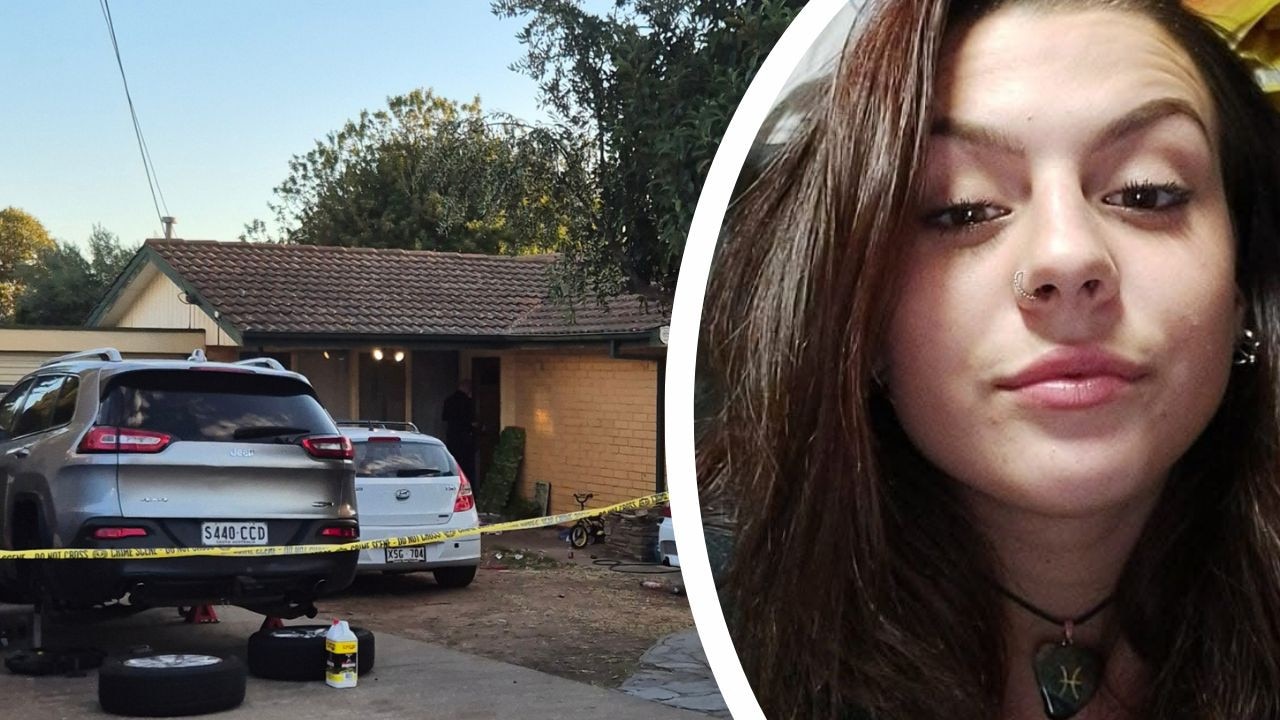Adelaide court throws out ICAC corruption case against ex-Renewal SA boss John Hanlon and public servant Georgina Vasilevski
After years of investigations and hearings, an ICAC case against two top SA public servants who were accused of taking taxpayer-funded luxury holidays has been thrown out of court.
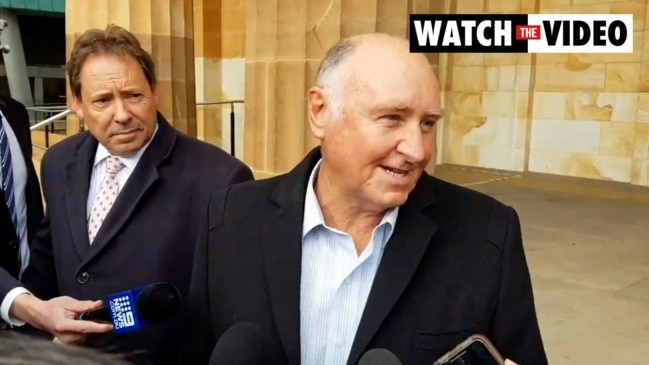
Police & Courts
Don't miss out on the headlines from Police & Courts. Followed categories will be added to My News.
The corruption case against ex-Renewal SA boss John Hanlon and a fellow public servant has collapsed, with prosecutors conceding they have no evidence to prove offences alleged by ICAC.
On Friday, the Adelaide Magistrates Court ruled Mr Hanlon and Georgina Vasilevski had no case to answer over allegations they took improper, taxpayer-funded trips overseas and interstate.
After three years of investigations and court proceedings, prosecutors were forced to concede they could not prove, beyond reasonable doubt, the duo did no official work on the trips.
The concession came after Stephen Mullighan MP – formerly the minister responsible for Renewal SA – gave evidence he had approved the overseas trip and its draft itinerary.
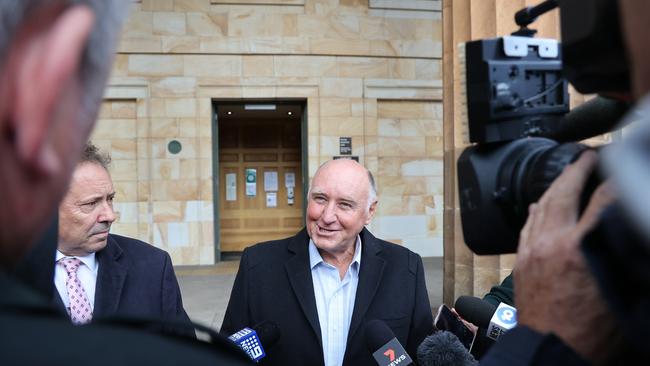
Outside court, Mr Hanlon said he and Ms Vasilevski had been “vindicated” after years of “gossip and innuendo”.
“I think I said, right from the start, that we thought this was nonsense … it’s pretty emotional at the moment … it’s been three years, a lot has happened in that three years,” he said.
“Two very senior public servants have lost their careers and reputations over this … our families have been through hell over this.
“In the case of Georgina, it has cost her family home … it’s pretty terrible stuff but, at the end of the day, we do feel vindicated.
“We knew we were just two hardworking public servants who tried to do everything we could for this state.”
Mr Hanlon, 62, of Goodwood and Ms Vasilevski, 44, of Henley Beach, were charged following an 18-month investigation by ICAC.
They were charged with counts of abuse of public office, acting dishonestly and dishonestly dealing with documents.
Prosecutors had alleged that, in 2017 and 2018, they improperly spent taxpayer funds while on interstate and overseas trips, staying in luxury hotels and eating at top restaurants.
The court heard their case – which Mr Hanlon labelled “nonsense” – hinged on emails, government memos and a single post-it note said to have facilitated the corrupt acts.
The matter suffered multiple delays due to arguments over confidential files and rulings in separate, unrelated ICAC cases.
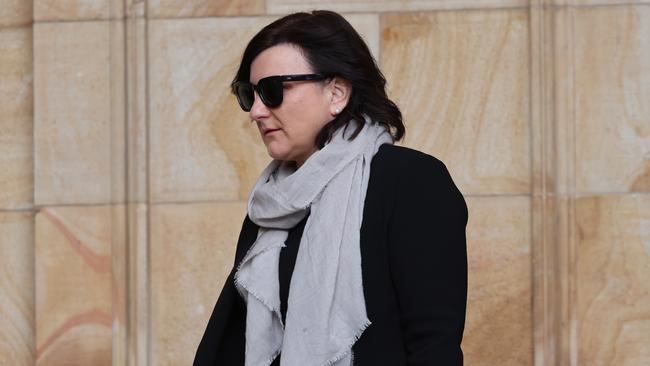
On Friday, Mr Mullighan gave evidence, agreeing he had “a close, personal relationship” with Mr Hanlon, whom he considered to be “conscientious, diligent and responsible”.
He agreed Mr Hanlon “had a lot of balls in the air” during that period, including the redevelopment of both the old RAH site and the Festival Plaza.
“There were complexities … (numerous stakeholders) had not only an interest, but sometimes a conflicting interest in how (the projects) should be delivered,” he said.
Mr Mullighan also agreed that Mr Hanlon did not require ministerial approval to travel interstate, and that such a practice was common.
He said Mr Hanlon did need ministerial approval to travel overseas – but agreed that had been granted, including permission for his “additional travel plans”.
The court also heard evidence from an ICAC intelligence analyst.
She could, the watchdog asserted, speak to the accuracy of a document that allegedly traced Mr Hanlon and Ms Vasilevski’s phones through the Melbourne CBD.
Under cross-examination, however, the analyst conceded she had neither qualifications nor training in the tracing of mobile phones.
She said had assessed call charge records provided by Telstra and “I just know what the data shows me”.
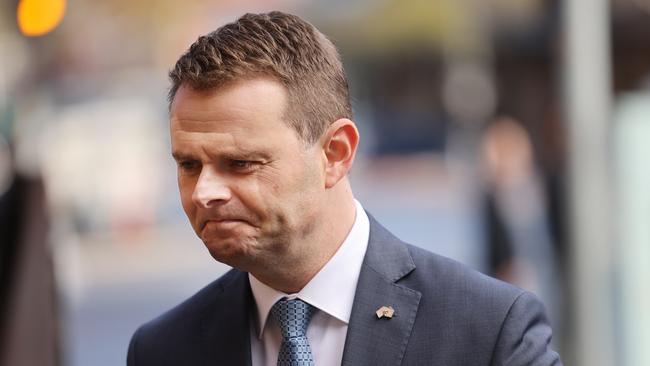
David Edwardson QC, for Mr Hanlon, suggested that was insufficient proof.
He suggested the analyst could say only that the defendants were within 100m of the mobile phone tower atop the Melbourne Grand Hyatt, not inside the building, and she agreed.
“In other words, you’ve really got no idea of the precise location of the (phone) handsets or the two individuals,” Mr Edwardson said.
The analyst replied: “No, I just have an indication of where the handsets may be located.”
Mr Edwardson asked Magistrate Simon Smart to dismiss the charges, saying the court had to “pose but a single question” to the prosecution.
“Their case has always been that both of these trips were entirely private, that there was no (Renewal SA) work completed on either trip,” he said.
“Your Honour need only ask what evidence, if any, exists which has the capacity to establish beyond reasonable doubt that no work was performed on either of the two trips?
“If the answer to that is ‘there isn’t’, then there’s no case to answer – it’s that simple.”
Peter Longson, prosecuting, said he did not possess such evidence.
“I have to concede that the evidence does not go that far … it cannot, in my reading, establish no work was done,” he said.
Mr Smart said he did not need to hear any further submissions.
“That concession being made, it seems to me the only proper course is to find that there is no case to answer – and I so find,” he said.
Outside court, Mr Hanlon said the three-year prosecution had been “tough on our families, our health and our finances”.
He said it was “very hard for me to comprehend” how the case had gone for so long, only to end in such a concession.
“I thank Stephen Mullighan for being honest today about what happened, and our roles,” he said.



